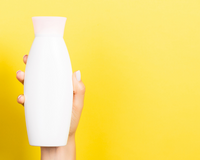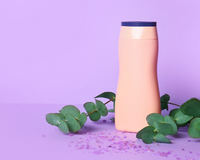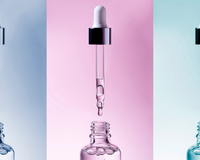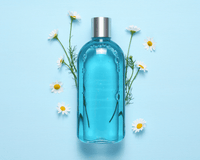The Best Natural Hair Care Products for Black
For the best natural hair care products for black, we should know what this type of hair is. Hair care is a gender neutral thing. Because we cannot gender care. It is therefore available for both men and women. It is, of course, available to women as prominently. But we cannot underestimate men either. Because there are too many well groomed men in the world. That's why care has no gender. It's better like this. When choosing products, your hair type or the type of care you want to do comes to the fore, not gender. It makes more sense to categorize it that way.
While we cannot promise that these hair oils will make your hair strong and healthy overnight, we can promise that they will help you get there. Patience and time are required throughout the hair extension procedure. As a result, our hair grows at a rate of half an inch every month on average. Do not be disheartened if that's not the number you were looking for! Although these hair oils cannot speed up the growth process, they do promote healthy hair, which contributes to growth and length maintenance. This is the crucial aspect.
To get you started, we've compiled a list of the best hair oils and serums for a healthy head of hair. If you're looking to make your own hair oil, check for the following ingredients: castor oil, Jamaican black castor oil, avocado oil, sunflower seed oil, argan oil, and jojoba oil are some of the oils used. If you have these elements, you are well on your way to developing healthy hair.
Hair Care
It is crucial to recognize that items designed for Black people are not always designed by black people and that things designed by black people may be utilized by everyone. We're here to help if you're not sure where to begin your search for high quality black hair products. Use this guide to buy black now (and always, because black isn't a fad) whether you're searching for a new indie brand, a beauty supply favorite, or a drugstore choice. When looking for Black-owned hair products, the best place to start is with the essentials. You should also seek elements that will improve your hair. How can you tell whether a product is black owned?
Supporting black owned companies is one way to help tilt the scales in favor of racial equality, and there are many fantastic alternatives in the beauty aisle. This was not always true. Men and women with melanin rich skin used to struggle to locate cosmetics that catered to their specific needs. Those with textured hair, on the other hand, have a plethora of alternatives in stores and online.
Hair Care Products for Black
Now, a group of black entrepreneurs is creating cosmetic companies with hues that complement darker complexions and curly lotions that nurture and define their 4C spirals in a unique way. To truly demonstrate your appreciation for these amazing hair product creators, you must first conduct some research. If you want your money to go directly into the wallets of small company owners working to make a difference, here are 30 incredible hair products from black owned firms.
If black hair is not properly cared for, it can become brittle, dry, or damaged. There are several methods for keeping hair healthy and moisturized while lowering the danger of breakage. Black hair comes in a wide range of textures and thicknesses. It is frequently curled or spiral in form. Your curls might either be loose or firmly curled. Because of the form of the hair follicle, this happens. Curled hair is created by a curly hair root, whereas straight hair is created around the hair base. There are several significant distinctions between black hair and other varieties. Let's look at he best natural hair care products for black
The following factors can have an impact on hair care:
- Cuticle width: The outer covering of human hair, known as the cuticle, protects it. According to 2015 research, black hair has a thinner cuticle layer than other hair varieties, which causes hair strands to break more readily.
- Overall density: Persons of African origin have 90,000 fewer hair follicles per 90,000 than white people, compared to 120,000 for white hair. As a result, hair loss may be more noticeable, and the person's scalp may be more visible.
- Dryness: Sebum is produced by the scalp to keep the skin and hair wet. This oily material travels from the scalp up the hair shaft, capturing moisture. When the hair is straight, the process is easier, and wavy hair might be prone to drying out.
How Should Black Hair be Cared for?
There are several approaches to hair care, and those that guard against damage while also adding moisture can keep brittle or dry hair healthy. If this concerns a person, he or she can try:
Wash Once a Week
She advises washing tightly curled hair no more than once a week. Washing more frequently may remove conditioning ingredients as well as some sebum, potentially drying out the scalp and hair. The shampoo you use is also crucial. Some anti dandruff and normal shampoos contain harsh compounds like sulfates that strip hair of its natural oils and dry it out, making it harder to comb through and increasing the possibility of breakage. Look for light, moisturizing shampoos and follow with a conditioner, making sure the conditioner gets all the way to the ends of the hair. Massage the scalp lightly while shampooing. Instead of rubbing your hair, dry it with a towel.
Conditioning in depth: A person can attempt deep conditioning or oil once or twice a month, in addition to applying a conditioner with each wash. This moisturizes the hair. After bathing, use a deep conditioner or natural oil, such as jojoba, to the hair and scalp. Wrap a warm towel around your hair and lay it aside for 30 minutes.
Reducing Friction When Sleeping
Moving around while sleeping can irritate and damage the hair. Furthermore, some textiles can absorb moisture from the hair and scalp. It may be a good idea to do the following to avoid these issues:
- Before going to bed, remove any tight hand straps.
- To decrease friction, wrap your hair in a flat, silk, or satin hair wrap.
- Use a pillowcase made of silk or satin.









